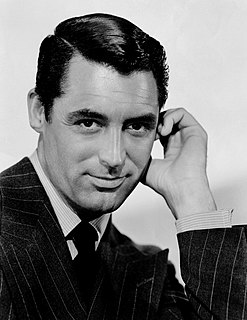A Quote by Cary Grant
I suppose you might call me the sophisticated type. I like to act with dialogue. Not with grunts.
Related Quotes
We all have an ongoing narrative inside our heads, the narrative that is spoken aloud if a friend asks a question. That narrative feels deeply natural to me. We also hang on to scraps of dialogue. Our memories don’t usually serve us up whole scenes complete with dialogue. So I suppose I’m saying that I like to work from what a character is likely to remember, from a more interior place.
When I go to the cinema, I want to have a cinematic experience. Some people ignore the sound and you end up seeing something you might see on television and it doesn't explore the form. Sound is the other picture. When you show people a rough cut without the sound mix they are often really surprised. Sound creates a completely new world. With dialogue, people say a lot of things they don't mean. I like dialogue when it's used in a way when the body language says the complete opposite. But I love great dialogue I think expositional dialogue is quite crass and not like real life.
You might have, as a character, 30 pages of dialogue a day if you're what they call a 'front-burner story.' So you go home, you learn your lines for the next day, you get up, you're there at 7 in the morning, you do a quick rehearsal, you're on camera, you might leave, you know, at 7 at night and start the whole thing over again.
Rather than make claims of final theories, perhaps we should focus on our ever-continuing dialogue with the universe. It is the dialogue that matters most, not its imagined end. It is the sacred act of inquiry wherein we gently trace the experienced outlines of an ever-greater whole. It is the dialogue that lets the brilliance of the diamond’s infinite facets shine clearly. It is the dialogue that instills within us a power and capacity that is, and always has been, saturated with meaning.



































